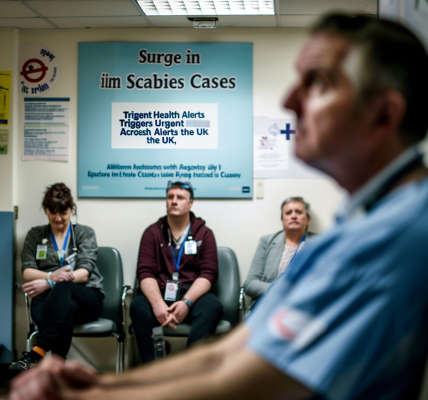The Monash Biomedicine Discovery Institute has made a groundbreaking discovery that could significantly impact the health of First Nations people. A recent study published in the prestigious journal Cell reveals a previously unidentified gene variant that affects the first-line immune defenses in these populations, who are known to be at a heightened risk for severe respiratory viral diseases.
This pioneering research was conducted by an international team of scientists, co-led by Monash University and the Peter Doherty Institute for Infection and Immunity. The study focuses on the immune responses of First Nations individuals across Oceania, which encompasses regions such as Australasia, Melanesia, Micronesia, and Polynesia. Over the span of eight years, the researchers undertook the first comprehensive mapping of a critical component of the immune system known as natural killer cells in these populations.
Natural killer cells are essential players in the body’s immune response, acting as the first line of defense against various pathogens. These cells are capable of restricting viral replication during the early stages of infection, which is crucial for both preventing infections and aiding recovery. Given the significant role these immune cells play, understanding their functionality in First Nations people is vital for developing effective disease prevention strategies.
First Nations individuals, including Aboriginal and Torres Strait Islander peoples, face an elevated risk of severe respiratory viral infections, such as COVID-19, pandemic influenza, and seasonal flu. While social determinants of health play a role, genetic variations within immune cells may also contribute to this increased vulnerability.
In collaboration with the Menzies School of Health Research, the University of Colorado, and Stanford University, the researchers conducted an extensive evaluation of natural killer cells in First Nations populations. This involved detailed genomic and molecular analyses performed at cutting-edge facilities, including the Stanford University genomic center and the Australian Synchrotron.
Dr. Camilla Faoro, a co-first author of the study from Monash University’s Biomedicine Discovery Institute, utilized the Australian Synchrotron to gain in-depth structural insights into the killer cell immunoglobulin-like receptors found in First Nations peoples at the molecular level. Dr. Faoro emphasized the significance of these findings, stating, “We have shown how the Indigenous populations’ unique genetic makeup influences their immune responses, which is crucial for understanding their susceptibility to viral diseases.”
This research not only sheds light on the genetic factors influencing immune responses in First Nations people but also opens up new avenues for targeted health interventions. By identifying specific gene variants that affect immune functionality, healthcare providers can develop tailored prevention strategies that address the unique health challenges faced by these communities.
Furthermore, the study highlights the importance of integrating indigenous knowledge and perspectives into scientific research. Engaging with First Nations communities throughout the research process ensures that the findings are relevant and beneficial to those who are most affected by the health issues being studied.
As the world continues to grapple with the ongoing impacts of respiratory viral diseases, this research represents a vital step towards improving health outcomes for First Nations people. The insights gained from this study will not only contribute to a better understanding of immune response in these populations but also inform public health strategies aimed at reducing the burden of disease.
In light of these findings, it is crucial for policymakers and health organizations to prioritize research and interventions that specifically address the health needs of First Nations communities. Continued collaboration between researchers, healthcare professionals, and indigenous communities will be essential in developing effective strategies to combat the higher risks of severe respiratory viral diseases faced by these populations.
The implications of this research extend beyond individual health; they also touch on broader issues of health equity and social justice. By focusing on the unique health challenges faced by First Nations people, the scientific community can contribute to a more equitable healthcare system that recognizes and addresses the diverse needs of all populations.
As the findings from this study continue to be disseminated, it is hoped that they will inspire further research and innovation in the field of immunology, particularly concerning the health of indigenous populations worldwide. The commitment to understanding and addressing the genetic factors that influence disease susceptibility is a critical step towards achieving better health outcomes for First Nations people and other marginalized communities globally.





